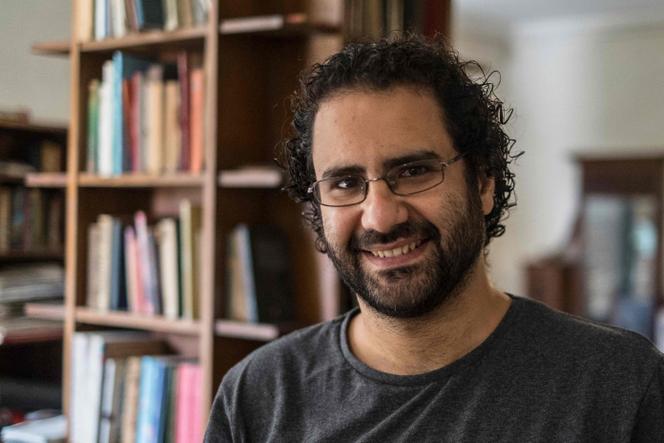


Egyptian President Abd el-Fattah el-Sissi issued a pardon on Monday, September 22, for prominent activist Alaa Abd el-Fattah, who has been jailed for the better part of the past decade, state-linked media reported. The 43-year-old British-Egyptian national, who was pardoned alongside five others, was a leading figure in Egypt's 2011 uprising and was jailed under each administration since. Following his latest arrest in 2019, Abd el-Fattah was sentenced in December 2021 to five years in prison for "spreading false news" after sharing a Facebook post about alleged torture in Egyptian jails.
Sisi pardoned "a number of convicted persons, after taking the constitutional and legal procedures in this regard," said Al-Qahera News, which is linked to Egypt's state intelligence service. "The pardon includes... Alaa Ahmed Seif El-Islam Abd el-Fattah," it added.
Alaa's mother, activist and academic Laila Soueif, recently ended a 10-month hunger strike demanding his release. Abd el-Fattah himself has been on hunger strike since the start of September, following a partial strike that began in March in solidarity with his mother.
"President Sisi has pardoned my brother! Mum & I are heading to the prison now to inquire from where Alaa will be released and when," Abd el-Fattah's sister, Sanaa Seif, posted on X. "I can't believe we get our lives back!" she added. His other sister, Mona Seif, also posted shortly after the pardon, saying: "My heart is going to stop."
Abd el-Fattah's sentence was due to end in September 2024, but authorities refused to count his remand period as part of his sentence. Tarek al-Awady, a member of Egypt's presidential pardons committee, said all procedures have been finalized and the prison awaits the arrival of the presidential decree for implementation. "He will be released directly from Wadi al-Natrun Prison," Awady told AFP, referring to a major prison complex located on the outskirts of Cairo.
Monday's pardon comes after Sisi earlier this month ordered relevant authorities to study a petition submitted by the state-affiliated National Council for Human Rights to pardon a number of individuals, including Abd el-Fattah. It also followed a decision by a Cairo criminal court to remove Abd el-Fattah from the country's terrorism list, ruling that recent investigations showed no evidence linking him to the outlawed Muslim Brotherhood group.
The British government has consistently raised Abd el-Fattah's case with Egyptian authorities, including during talks between Prime Minister Keir Starmer and Sisi. In May, a United Nations panel of experts determined his detention was arbitrary and illegal and called for his immediate release.
Last month, UN High Commissioner for Human Rights Volker Türk also urged the Egyptian authorities to end a practice allowing the prolonged arbitrary detention of government critics. The practice, known as "rotation," often involves lodging new charges against detainees just before their remand period comes to an end. Türk said the practice "appears to be used to circumvent the rights of individuals to liberty, due process and equality before the law."
Since 2022, Sisi's administration has released hundreds of detainees and pardoned several high-profile dissidents, including Abd el-Fattah's lawyer Mohamed al-Baqer. Despite Abd el-Fattah's pardon, hundreds of other activists and politicians remain behind bars.
